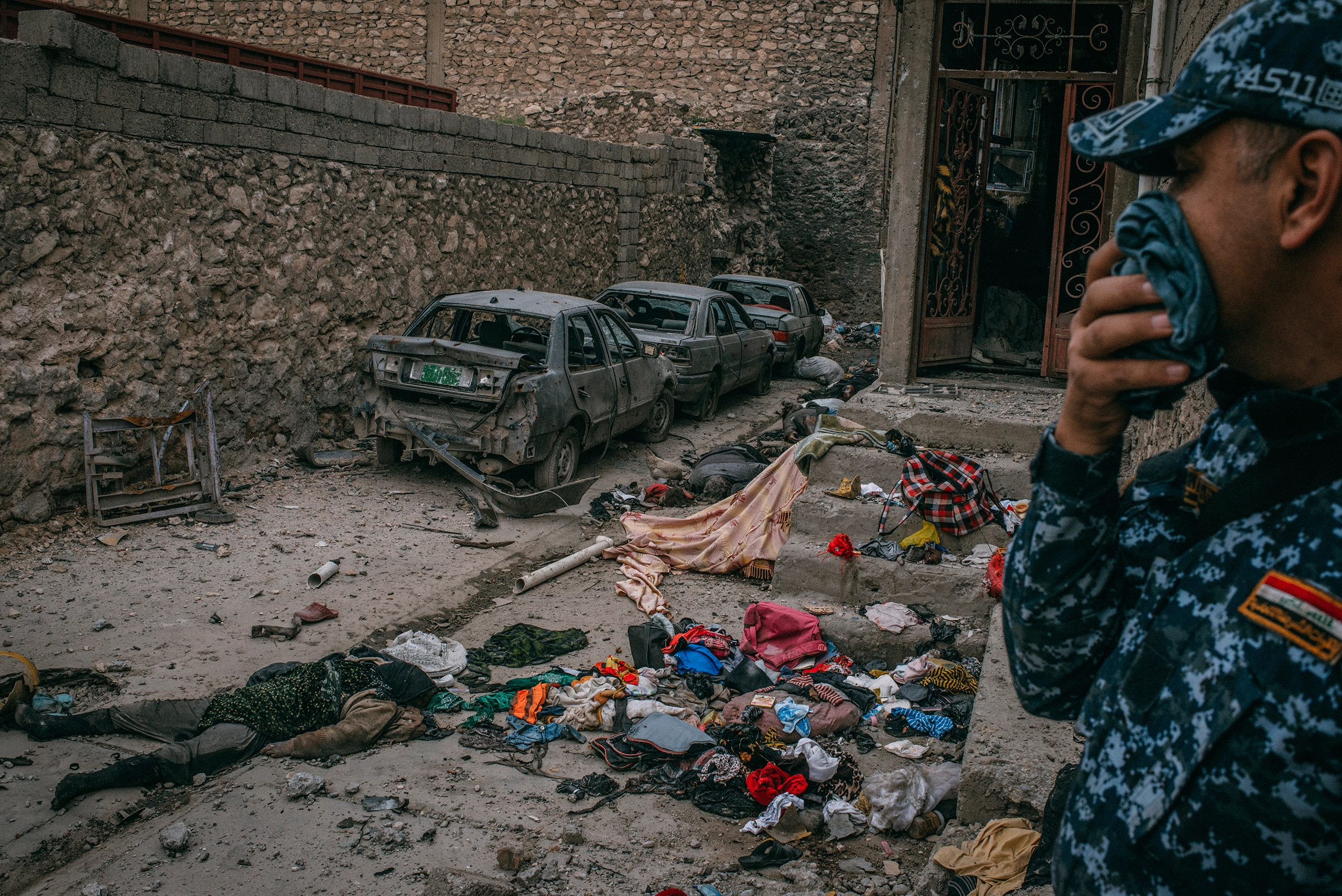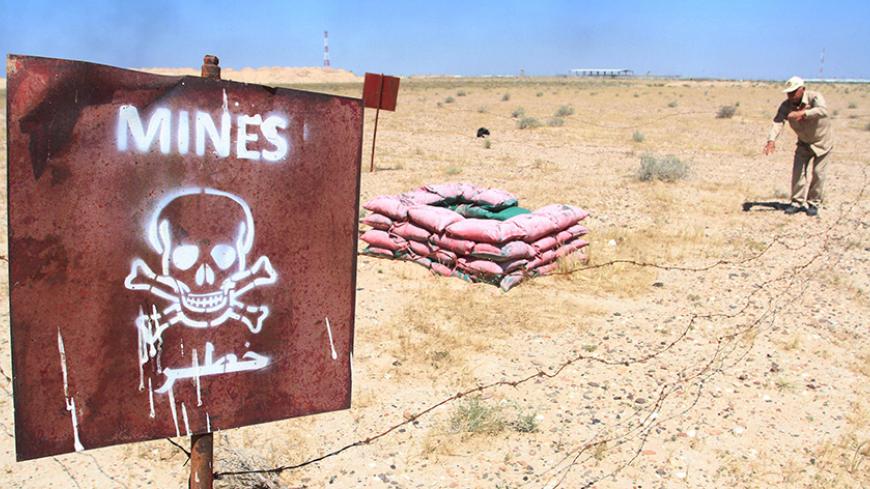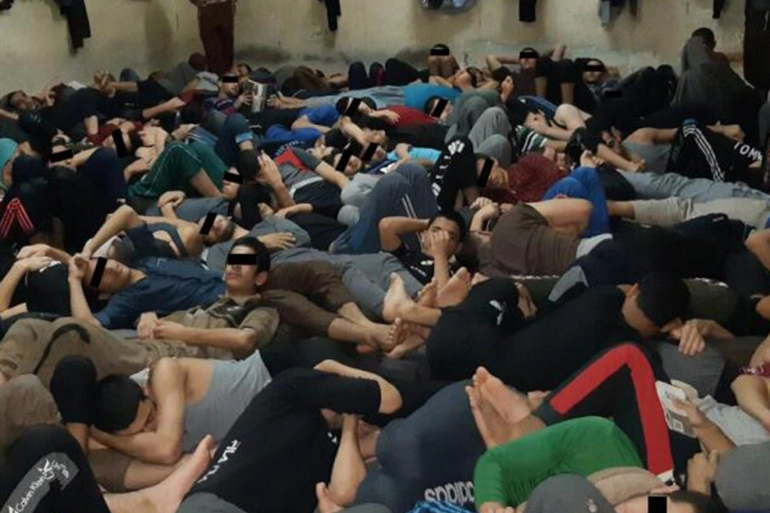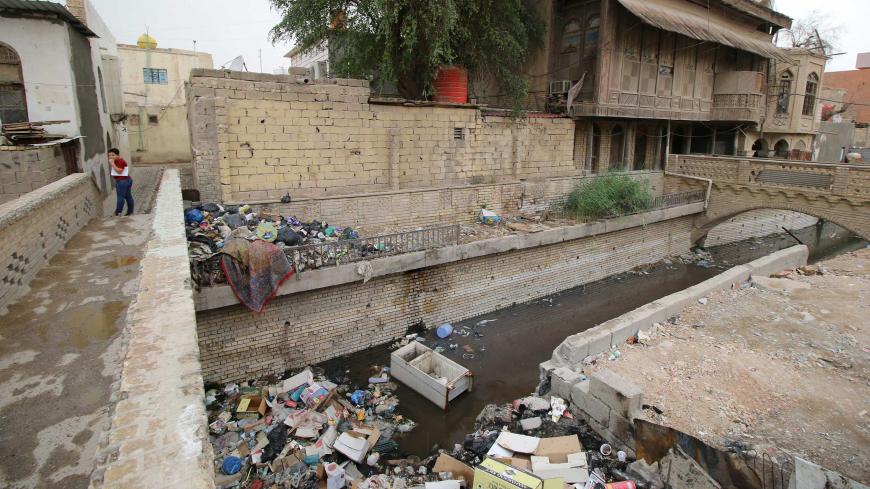The Iraqi Observatory for Human Rights said that despite the end of the war against the organization "ISIS" in the city of Mosul in northern Iraq for about two years, the effects are still present.
The remnants of war and thousands of rotting bodies that are still under the ruins of the city has become a source of the spread of epidemic diseases such as the Scabies began to kill the residents of Mosul for months.
After the liberation, the city witnessed several mass exhumations, but it has not yet been able to end its problem, most of which is attributed to the gunmen who called for those killed during the fighting.
The Mosul municipality estimates the number of bodies under the ruins of the old city, especially in the districts of Al-Maidan and Al-Shahwan, about 3,000 bodies, and the pollution of these bodies more than 40% of the area of the right side of the city of Mosul.
A group of residents of the new Mosul on the right- side of the city said they "still see the bodies between their homes, more than a year and a half after the announcement of the liberation of ISIS." They also talk about "children's fear of seeing bodies and forcing some parents not to take their children out Alone".
"The scenes of seeing the bodies among the houses are very scary, we live in an area like a graveyard, no one can lift the rubble or clean up the war zones because of the fear of bodies and improvised explosive devices that could explode at any moment".
The Iraqi Observatory for Human Rights said: "The municipality of Mosul and the civil defense teams have not been able from access to many areas because of the intensity of destruction and fear of the presence of improvised explosive devices and bodies".
It was not possible for officials to ascertain whether these bodies belonged to civilians who could not leave Mosul during the war, or that they are fighters in a ISIS organization, Especially that police stations, and civil defense teams from time to time receive reports indicating that bodies have been found under the rubble.
According to the Office of the High Commissioner for Human Rights in Iraq, the security forces and rescue teams were able to recover (4720) bodies in the province of NINAWA until the first of March 2019, including the bodies of 2666 bodies of identity information and 2054 unidentified, addition to 851 of the children were recovered throughout the province.
Families living in the al-Kawazin area of old Mosul said they were "They saw the bodies on a daily basis and saw the sight of parts of the bodies that were broken, and did not know whether they were to ISIS organize or a civilian who died during the battles that took place there".
"Some of its neighbors cannot return to their homes because of the bodies and Improvised explosive devices that may be there or on their sides. The role of the government in securing our return is weak and does not rise to the scale of the disaster and the tragedy we are experiencing. We are in a bad situation".
The Iraqi Observatory for Human Rights said that "the danger of the presence of many mines, bombs and remnants of war led to many incidents, and it represents a significant obstacle to the return of many families to their homes. The Iraqi government must remove the war waste, the Ministry of Health and complete the requirements for DNA testing, and matching with unidentified bodies to complete the legal requirements".
According to statistics from local civil society organizations operating in Mosul, the city is home to more than 7 million tons of rubble and war debris, while 90% of the area of Mosul is covered by destruction, amid the waiting of its displaced population in camps in the Kurdistan Region and on the left side From Mosul to start the reconstruction process in order to return to it.
The Iraqi Observatory for Human Rights said, "It is not reasonable to keep the bodies in the city of Mosul and within residential times, despite the passage of more than a year and a half on the announcement of the Iraqi government to liberate the regions of the ISIS".
The observatory also said "The Iraqi government must expedite the necessary measures to help families get rid of the bodies dumped near their homes, they pose a real threat to their lives, and terrifying the children".




